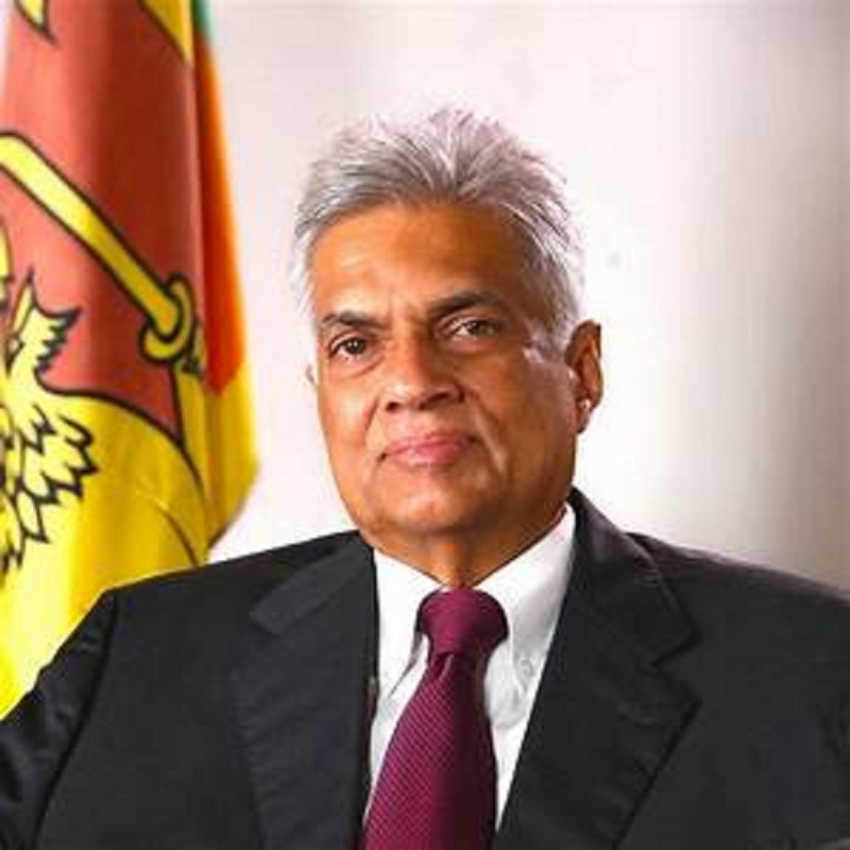As much as achieving growth, fiscal consolidation had to also get top priority; Prime Minister Ranil Wickremesinghe told the Fireside Chat 2019 program held at Colombo Hilton on Tuesday. “When we took over in 2015, we realized how bad the economy was and how bad it was going to be. And just as much as we wanted growth we realized that fiscal consolidation had to get priority,” he said.
The Premier said the country had high level of debt especially foreign commercial debt and had to first get the economy’s primary balances positive and get into a position where the government could gradually repay the debts. The Premier recalled when Margaret Thatcher came into power in 1979 in her first two years of reform there were riots in the streets of London. It was so tough. Wickremesinghe said however that his government did not have go there because his finance Minister started giving hefty salary increments to government servants. No government would have liked to do what they did but the options were very few. “What we done were to get fiscal consolidation and now we can go for debt payments,” the PM said.
“For the first time in 2019 we hope to have the current account balance positive. This is after 60 or 70 years. Those days it did not matter because debt was in rupees. Our revenue was down and it was only 63.5 as a percentage of expenditure in 2015, today it is 75.1 which also accounts for some of the problems in the private sector. We had to increase our revenue. We had no other options. All of this resulted in a continued deficit in the rupee market from about 2018.”
Wickremasinghe said the central Bank has now reviewed the statutory reserves ratio of the commercial banks to 2.5%, so the liquidity shortages itself has been reduced from Rs 94 billion in November to Rs 12 billion at present. This has resulted in Rs 150 billion coming out into the market with Rs 90 billion in the first round and Rs 60 billion in the second round. With the Gam Peraliya and Entreprise Sri Lanka and some of the other programs the government hoped that there will be over Rs 300 billion brought into the economy in the coming month. The Premier said that was one way in bringing money in to the economy. The inflation has been contained below 5 %. The real interest rates have also been at high levels and Sri Lanka’s interest rates are currently the highest in the region, he claimed. There is also a substantial difference between the market interest rate and the Central Bank lending rate and these were some of the impediments to the reasonable economic growth.
Wickremasinghe said that in 2018, Rs 765 billion additional funds had been released to the private sector but this credit growth has not been translated into economic growth because a fair amount of it had gone in to consumption related purposes which was also shown in the increase of imports to the country. “So what the Central Bank is now attempting is to reduce the high market interest rates without adjustments to the monetary policy. We have now to talk to the commercials banks both private and state as to how their lending rate can come downwards with the recent adjustment because this is essential for the private sector to get ahead,” he said.
Wickremesinghe said the continuation of the fiscal consolidation process had to go on and when they took over there was Rs 136 billion outstanding to outside parties. He said the government has settled the outstanding of 2016 and 2017. Out of the Rs 90 billion of 2018 they have also settled Rs 60 billion.
He said they will have to intervene at some stage to ensure that funds are made available for the private sector. There are many other measures that the government would like to take. For instance, the PM said the government was looking at the EPF entering the share market and had put in place a new security system which has progressed very well.
The premier also pointed out that the country could not have growth through a conventional economy and new sectors had to come and Sri Lanka had to become the centre of the Indian Ocean as a location for business and logistics.
“We have to look at new technology, our manufacturing processors will have to move up and our agriculture modernized. This is the stage we have to lay the foundation for investment and one of the issues is how do you move on the Ease of Doing Business Index from 100 to at least to 75,” he added.




















